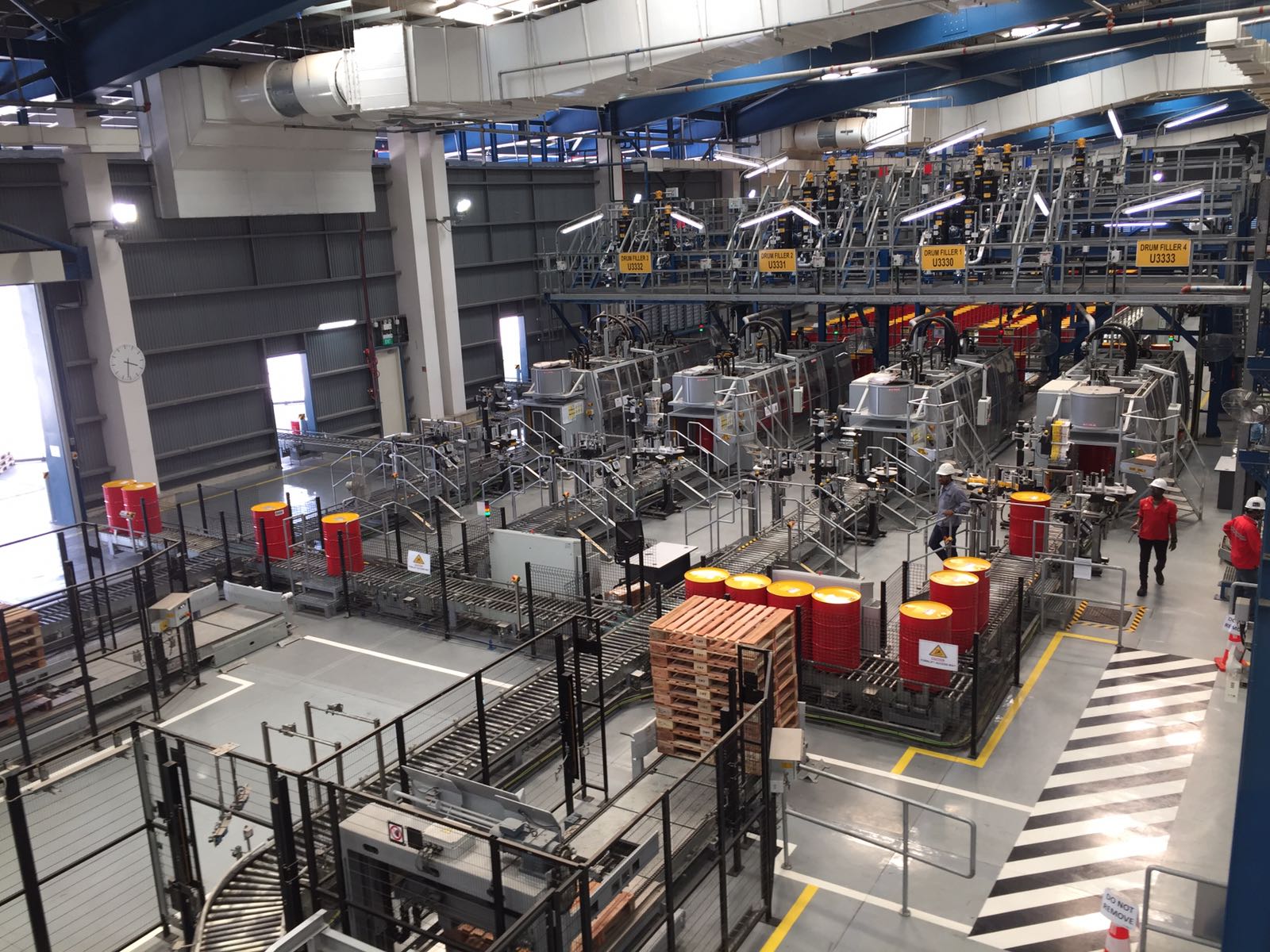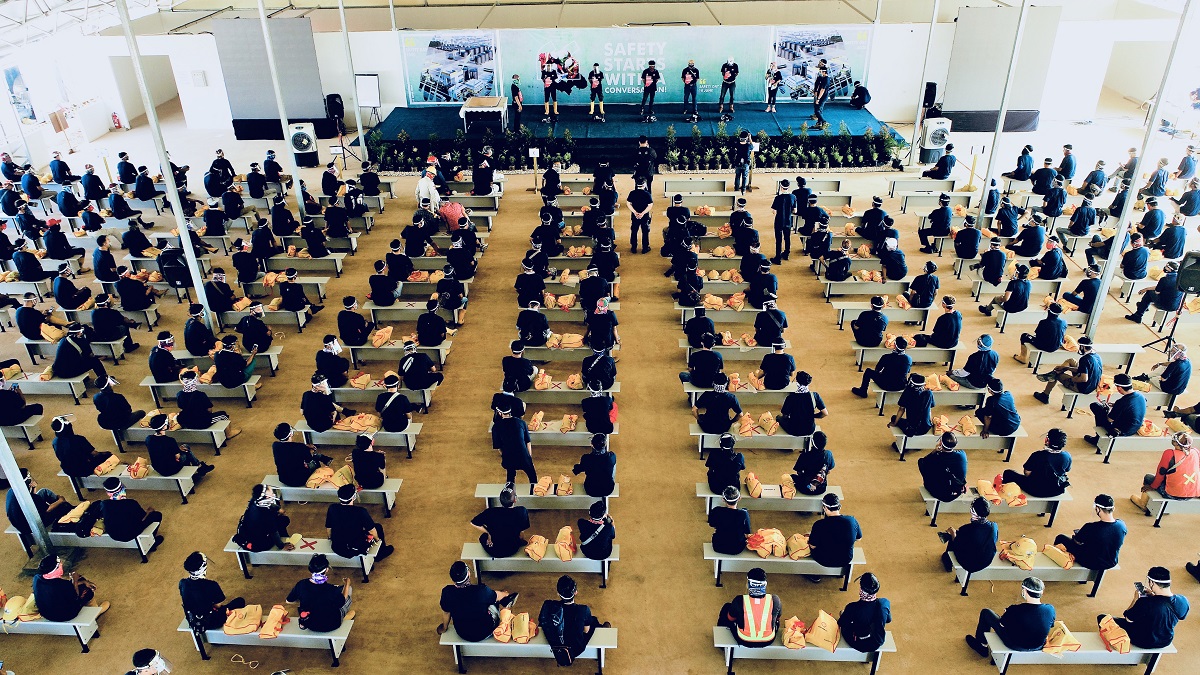As the COVID-19 crisis struck and global supply chains collapsed, Shell’s global supply networks remained intact, notable for their continued efficiency, competitiveness, and resilience. Much of this had to do with Shell’s longtime championing of digital and data solutions, sustainable practices, and cutting-edge talent. Using innovative technologies, it promoted new ways of working and collaborating, safeguarded its personnel and assets, and ensured supply chain optimization and business continuity.
To learn more about how this energy giant’s supply chains and, indeed, the company itself has stayed resilient through the upheaval, Frost & Sullivan’s Dr. Julia Saini, Associate Partner & Vice President, Mobility Practice, and Sven Thiede, Vice President, Energy, Sustainability, and Mobility Practices, spoke with Richard Jory, Vice President, Lubricants Supply Chain at Shell.
As Vice President responsible for the global supply chain of Shell lubricants, what is your corporate mandate?
My job is to lead the supply chain for Shell’s lubricants business. We aim to safely produce the lubricants and greases that our customers require worldwide, ship it whenever they want it, and at a competitive price. Most importantly, we do this while ensuring our people go home safely every day.
You mentioned the words ‘safe’, ‘digital’, and ‘talent’. Everyone talks about ‘digital’ like they do about ‘data’ but no one knows what they are or mean. What is ‘digital’ for you?
Across our supply chain, we are building a strong digital backbone. And we are simplifying complex data to improve productivity and better know and serve our customers. But it’s not just about hardware. I’m also encouraging the 3,000 people who work in and with the lubricants supply chain organization to embrace more digital ways of thinking.
Digital means all things to all people. ‘Data’ is fundamental to ‘digital’; it’s about moving towards a digital business using data to make better decisions. With my team – we have roughly 3,000 to 4,000 people in the overall team – I try to demystify the term ‘digital’ by saying, for example, that instead of using their excel spreadsheets as they did in the past, they can now use digital tools, which have the data pre-populated in them.
Shell has been the lubricants market leader globally consecutively for the last 14 years. We have access to huge amounts of data that cover every aspect of the business. Today, with computing power being what it is, we can leverage the scale and data to make better decisions in everything that we do. That’s the core of digitalization for me.
Shell’s Tuas Lubricants Plant in Singapore is highly automated and can produce up to 430 million liters of lubricants and greases every year
 Source: Shell
Source: Shell
How do ‘digital’ and ‘data’ link to safety, going beyond the aspect of just physical safety?
Many countries still have travel restrictions in place to halt the spread of COVID-19. For the last eight months, I’ve been sitting in my home office in Singapore. It has been a little frustrating because I like to be out in the frontlines at our plants and logistics centers across the world. Today, the only way I can be out in the frontlines of our plants and logistics centers across the world is in a virtual, digital way from Singapore. For example, on Safety Day in June – a day when all of Shell steps back and reflects on our commitment to safety – I was able to be present virtually at several different plants around the world and do a safety tour. Some of this was through the use of smart glasses to see what was happening, literally through the eyes of our employees in the plants.
The other aspect in terms of ‘safety’ and ‘digital’ links back to smart glasses. Augmented Reality (AR) is helping us work more efficiently and stay safe. Sometimes our frontline operators need help from technical experts in other parts of the world. Using digital tools with augmented reality, we can get the expertise to where it is required. AR is not new to the supply chain but is fast playing an important role. A good example is our Marunda lube oil blending plant in Indonesia where we are doubling capacity. We’ve been able to finish the final acceptance testing of bottling lines and blending equipment with the manufacturers in Italy and China. AR has helped us have ‘eyes’ on the ground without needing to travel.
Employees at Marunda Lubricants Plant in Indonesia marking annual Shell Safety Day under COVID-19 protocols

Source: Shell
Digitalization is not just about technology, it is also about the people that make it happen. How are you using digitalization to ensure new ways of working and collaborating with your staff?
The COVID-19 pandemic is accelerating the digital transformation of our operations. Virtual tours have allowed us to go out, talk to the operators at the frontlines, move around, and that’s possible because we’ve put the enabling technology into our plants, even as we move ahead with enhanced 4G and 5G Wi-Fi capabilities. The operators themselves are very excited by these digital technologies and to learn all sorts of new skills.
One good example is BlendRight. It’s an award-winning data analytics tool developed in-house we use to improve decision-making. We’ve been able to combine our huge legacy dataset with advanced analytics tools to make better decisions. And in doing so, reduced costs by millions of dollars.
Another example is Smart Plant+, a manufacturing execution system at our Singapore plant that helps us predict where there is going to be a failure, a bottleneck, or maybe even a quality incident on the shop floor even before it happens. This is something that motivates our frontline operators because there’s nothing more frustrating than having to spend a lot of time correcting an error. Using data-driven insights helps us get it right the first time, saves time, removes frustration, and improves work satisfaction.
The training aspect is very important. Similar to the automotive industry, I see a talent gap in certain areas, paralleled by the frustration of skilling up people who then could potentially leave. One of the pillars you had touched on was talent. How do you attract and retain talent in your industry?
This is a challenge that Shell has been working on for quite some time. Talent acquisition is a priority for us. We look for talented people with knowledge and skills in Science, Technology, Engineering, and Math (STEM), both at the graduate level and also with experienced hires.
We also invest in education programs to develop young engineers into future innovators. This is the 35th year that we’ve organized the Shell Eco-marathon, an energy-efficiency competition that encourages young people to build a small, energy-efficient, one-person car. When I was based in the Middle East, I used to promote the Eco-marathon competition with university teams. The record is driving over 3,000 kilometers on a liter of fuel. This shows what talent can do if given the right opportunity. The students were also attracted by the prospect of not only having to build a car but also to finance and market it and move it from the place it was constructed to the track where it was going to be raced.
For the supply chain, the days of thinking of plants in terms of oily overalls are long behind us. Technology and digital, in particular, are changing that mindset. For instance, we were integrating a new section into our existing Grasbrook plant in Hamburg. It was great to see young data engineers working closely with experienced frontline operators to integrate all the assets – both old and new – into a computer screen to make the plant operate better. And that I think is the future; blending the two to make everyone’s lives a little better so we can give the customer the product they need, whenever they want.
Young people don’t just want to sit behind a keyboard; they want to see the physical outcome of their work. They want to have a purpose in what they do. Working for a company like Shell, where we are trying to tackle some of the biggest challenges the planet faces – the energy transition, for example – gives real meaning to people’s work.
Developing an appropriate supply chain response to the current coronavirus outbreak is extremely challenging. What actions are you taking to mitigate the impact of the crisis on the lubricants business for which you are responsible?
We are a global network of 29 lubricant plants and nine grease plants. Back in January, we had to think very quickly on our feet in China where the Coronavirus struck initially and where we have big operations. In Wuhan, our team quickly coordinated a complex, multi-party effort to deliver vital lubricants required for equipment to build temporary hospitals and provide much-needed oxygen supply. All while ensuring the safety of our staff and customers.
In February, for people in the West, the pandemic was still something largely confined mostly to TV screens. With the learnings from our colleagues in China and Hong Kong, we were able to quickly review all our business continuity plans and cascade learnings across the globe. So we were ready to continue providing reliable, resilient operations for our customers while keeping our staff safe.
That was essential because the supply chain is the engine room of Shell Lubricants; it’s a network of assets, suppliers, and partners that has to work. We are an industry that provides products that are often crucial to keep things running. Emergency vehicles, delivery trucks, ships, and even air compressors in frontline medical equipment in hospitals all require lubricants and lubricant products. Our supply chains must remain operational.
At the end of the day, it is really about protecting the health of our colleagues working at plants and offices (and now homes), providing them with the tools and the equipment they need to do the job safely, and making sure we keep our customers supplied. We also support response efforts in the communities where we live and work. In Kenya, our joint venture converted a lubricants blending plant to produce hand sanitizers for the government.
There’s been a lot of discussion around the differences between thriving and surviving and between being a disruptor and not being disrupted. What is the difference between thriving and surviving for you?
Without a doubt, this has been a challenging year for many people. What’s been important to me is motivating people during this time of crisis, trying to create small islands of certainty on which people can build and get the maximum out of themselves. If we can all do that, we can thrive.
It’s important to recognize that companies, ultimately, are just people. Hopefully, the decision-makers are making decisions from a strong sense of purpose. The key is to ensure that people are sustainably happy. Happy, engaged, motivated employees and content customers are likely to translate into satisfied shareholders. This can be measured through employee surveys or customer satisfaction scores, and of course, the financial results will show what shareholders are thinking.
On the personal front, I am guided by a clear direction and purpose. Many years ago, my family and I chose to be carbon-neutral. My wife, who is Mexican, and I invested in an 18,000 tree-replanting forest initiative in Mexico. We must take personal and professional decisions that leave behind a better planet for our children.



